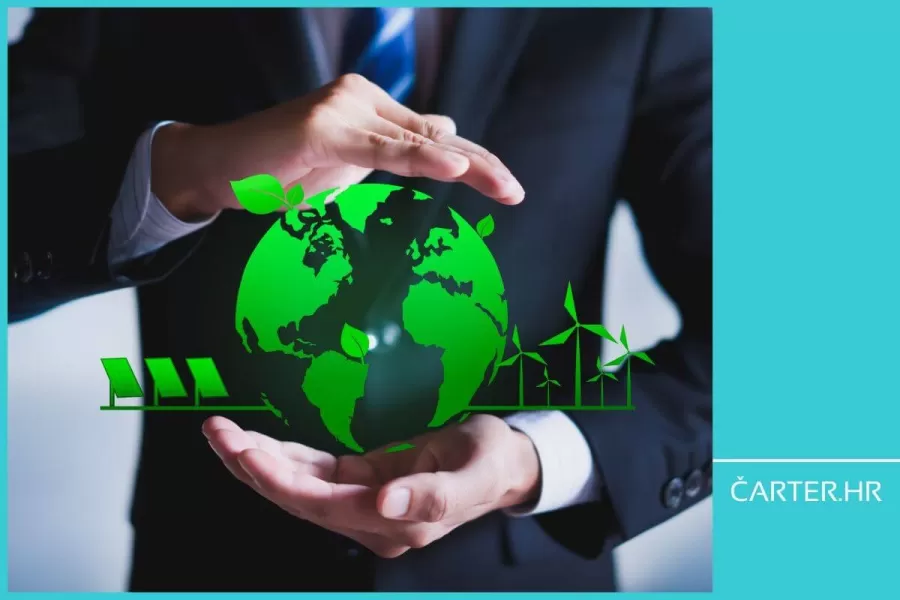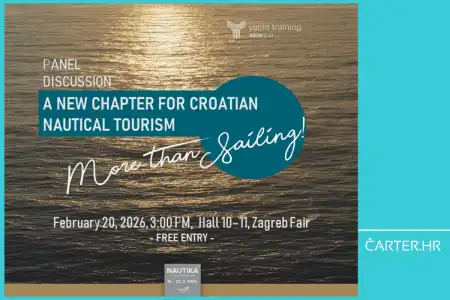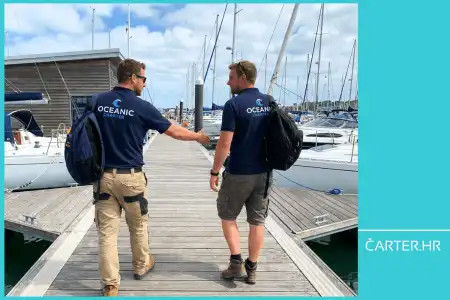
- 30.01.2024.
- News, Regulations
The yacht charter industry is slowly turning a "new" page - towards sustainability. "Green" technologies are no longer the future, but reality. But, first, numerous factors need to be considered - from financial analysis and staff training to infrastructure adaptation and compliance with legal preconditions. Katarina Ćosić brings us how the yacht charter industry can successfully and legally use these technologies.
In today's world, more and more emphasis is placed on sustainability and environmental responsibility.
This global awareness of the need to protect the environment is also reflected in various industries, including the yacht charter sector.
Introducing "green" technologies in the yacht charter can bring numerous advantages. Still, before beginning this process, it is crucial to have specific knowledge to ensure a successful and sustainable implementation.

Crucial steps for the introduction of "green" technologies in the yacht charter industry
Study of available technologies: before introducing "green" technologies, it is vital to study the available options. This includes analysing energy-efficient engines, emission reduction systems, solar panels and other innovations that can improve the sustainability of the charter fleet.
Financial analysis: introducing environmental technologies may initially require significant financial investments. Therefore, it is necessary to carry out a thorough analysis of costs and benefits. Long-term effects on operating costs, maintenance and potential subsidies or incentives that governments or organisations may provide must be considered.
Staff training: the introduction of new technologies often requires staff training. Ensuring that employees have the necessary skills and knowledge to effectively use and maintain "green" technologies is necessary. Staff training is critical to maximising the benefits of new systems.
Infrastructure evaluation: before switching to green technologies, it is necessary to check whether the infrastructure is ready for that step. This includes adapting docks for electric boat charging needs, providing adequate support for solar panels or any changes in operating procedures to optimise environmental performance.
Achieving certifications: It is helpful to consider achieving appropriate certifications or accreditations as evidence of commitment to environmental sustainability. This can improve reputation among travellers and partners and provide access to various incentives and grants.
Cooperation with suppliers: to fully integrate "green" technology, it is essential to cooperate with suppliers who share the same environmental values. Encouraging suppliers to adopt sustainable practices and technologies enables the creation of an entire ecosystem of sustainability in the yacht charter sector.

Legal preconditions for “green” technologies in the yacht charter industry
The introduction of "green" technologies in the yacht charter industry requires careful adherence to specific legal prerequisites to ensure legal and sustainable business. Here are some fundamental legal aspects to consider before implementing these technologies:
Vessel and maritime safety legislation: checking and complying with all relevant laws and regulations relating to maritime safety. It is necessary to ensure that all ships equipped with "green" technologies meet safety standards and regulations.
Environmental regulations: require the study of legal requirements related to emissions of harmful gases and other environmental aspects. It is necessary to ensure compliance with the standards and emission limits set by the competent authorities.
Certification and accreditation: consider obtaining appropriate certifications or accreditations that confirm the environmental sustainability of the vessel. This requires monitoring any changes in regulations and certification conditions.
Legal issues related to renewable energy sources: in the case of a decision to use renewable energy sources such as solar panels, it is necessary to study and respect the legal aspects related to the production and distribution of renewable energy.
Incentives and subsidies: research of available incentives and subsidies that can help financially implement "green" technologies. This requires monitoring the conditions and requirements for obtaining such grants.
Labour rules: in order to ensure that the application of new technologies does not violate the labour rights of employees, it is recommended to study the legal aspects of staff training to work with new technologies.

Environmental protection act: understanding and compliance with all legal obligations related to environmental protection. Participation in environmental protection and carbon footprint reduction programs if available.
Cooperation with local authorities: communication with local authorities to obtain information about local regulations and initiatives related to environmental sustainability.
Legal issues on the protection of intellectual property: when importing or using innovative technologies, it is necessary to study the legal aspects related to patents, copyrights and other forms of intellectual property.
Insurance and liability: here, it is crucial to study how introducing "green" technologies affects insurance and liability conditions. All aspects of the business should be covered by appropriate insurance.
Legal compliance with the above aspects is essential to avoid potential legal difficulties and ensure that the introduction of "green" technologies in the yacht charter fleet is legal and sustainable.
Conclusion
Introducing "green" technologies in the yacht charter can bring long-term benefits not only for the environment but also for the business.
However, thorough planning, study and collaboration are essential to ensure these technologies' successful and sustainable introduction.
Categories of trends
- News
- Sale
- Marketing
- SEO
- Web design
- Social media
- Technology
- Regulations
- Management
- Education
- Finances
- User experience
Newsletter
Sign up for the newsletter and receive the latest trends and tips straight to your inbox




